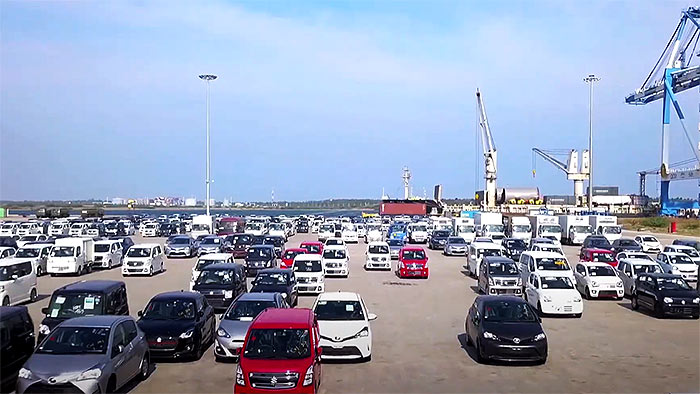Sri Lanka to lift motor vehicle import ban in phases starting October 2024

(Photo: YouTube)
The Sri Lankan government has announced the lifting of its long-standing ban on motor vehicle imports, effective from October 1, 2024.
This marks the end of over four years of stringent restrictions, which were initially imposed in March 2020 to preserve the country’s foreign exchange reserves during the height of the economic crisis.
The government’s decision, which comes as part of a broader economic recovery plan tied to the IMF’s Extended Fund Facility (EFF) programme, will see vehicle imports resume in three stages.
These phases, aimed at boosting economic activity while managing environmental and safety concerns, are designed to gradually reintroduce vehicles into the market.
Key Phases of the Import Policy:
Stage 1 (October 1, 2024): Imports of public passenger transport vehicles, special purpose vehicles, and non-motorized goods.
Stage 2 (December 1, 2024): Commercial vehicles and goods transportation vehicles.
Stage 3 (February 1, 2025): Personal motor vehicles, including cars, SUVs, vans, and pickups.
The Cabinet Memorandum outlining the phased import plan emphasizes that this move will reinvigorate the auto industry and address challenges such as an aging fleet, high maintenance costs, and poor fuel efficiency.
Vehicle imports had been a significant revenue stream for the government prior to the ban.
To balance the pressures on foreign exchange reserves, additional duties on motor vehicle imports will be introduced. At the same time, the policy will prioritize environmentally friendly vehicles, including electric vehicles, in line with Sri Lanka’s climate commitments.
New regulations will shift emissions standards from Euro 4 to Euro 6, while petrol and diesel-powered three-wheelers will no longer be permitted, favoring electric alternatives.
In a bid to improve road safety, the government has set age limits for imported vehicles: motor cars, SUVs, motorcycles, and pickups must be less than three years old, public passenger and commercial vehicles less than five years old, and special purpose vehicles up to ten years old.
Importers will also face penalties for delays in vehicle registration beyond 90 days.
An annual licensing system will be introduced to regulate importers, manufacturers, and traders, ensuring compliance with tax requirements.

Latest Headlines in Sri Lanka
- Popular rapper Shan Putha arrested with firearm March 14, 2025
- Batalanda commission report tabled in Sri Lankan Parliament March 14, 2025
- Female Grama Niladharis withdraw from night duty over security concerns March 14, 2025
- Sri Lanka ranked as the best country for settling down March 14, 2025
- UN pledges support for Sri Lanka’s industrial and SME development March 13, 2025



Sri Lanka is in the midst of an economic crisis and it begs belief that the Government wants to import cars. The Government must get their priorities right. No wonder when you have an unelected President ruining the Country